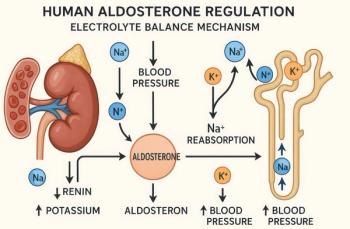
Blood Pressure Keeps Even Keel With Daily Chocolate
COLOGNE, Germany -- Chocolate, the ultimate comfort food, has won another health vote of confidence, a reduction in blood pressure. Tea -- black or green -- did not.
COLOGNE, Germany, April 11 -- Chocolate, the ultimate comfort food, has won another health vote of confidence. Tea -- black or green -- did not.
Rationally applied, daily chocolate may contribute to normal blood pressure on a par with beta-blocker or ACE inhibitor monotherapy, according to a meta-analysis by Dirk Taubert, M.D., Ph.D., of University Hospital here, and colleagues.
Daily intake of chocolate improved systolic blood pressure 4.7 mm Hg and diastolic 2.8 mm Hg compared with controls, they reported in the April 9 issue of the Archives of Internal Medicine.
However, the meta-analysis of 10 short-term randomized trials looking at two antioxidant polyphenol flavonoid-rich foods-tea and cocoa products-revealed no significant blood pressure benefit from black or green tea, they reported in the April 9 issue of the Archives of Internal Medicine. All but one of the cocoa studies involved dark chocolate and one included milk chocolate.
Dark chocolate has been shown in previous studies to improve vascular function among hypertensive patients and many other populations.
At the population level, the improvements seen with chocolate "would be expected to substantially reduce the risk of stroke (by about 20%), coronary heart disease (by 10%), and all-cause mortality (by 8%)," Dr. Taubert and colleagues wrote.
"Rationally applied, cocoa products might be considered part of dietary approaches to lower hypertension risk," they added.
Hypertension control guidelines recommend increased fruit and vegetable intake, in part due to their polyphenol content. But the major source of these antioxidants in the Western diet--chocolate and tea--have gotten short shrift in dietary advice, the researchers said.
The meta-analysis included randomized, controlled parallel group or crossover studies of tea or cocoa products with at least 10 normotensive or hypertensive adult participants for a minimum of one week.
The five small cocoa-product studies had a total of 173 participants (87 in cocoa arms) and a median duration of two weeks.
Three studies used dark chocolate at a dose of 100 g/day containing 500 mg polyphenols with a polyphenol- and cocoa-free white chocolate control group. One used high-flavonoid chocolate (46 g/day containing 213 mg procyanidins) with low-flavonoid chocolate as the control. Another used flavanol-containing milk chocolate (105 g/day with 294 mg of flavanols and procyanidins) with cocoa butter chocolate as the control (less than 5 mg flavanols). Most studies balanced calorie intake between intervention arms.
The five tea studies included a total 343 participants (171 in tea arms) with a median duration of four weeks. Four gave participants black tea (four to at least six cups/day) while one gave a single green tea packet per day. Controls ranged from no tea to water, milk, sugar, and caffeine intake-matched placebo.
Most cocoa and tea study participants were men (63.9% and 70.7%, respectively) and normotensive (34.0% hypertensive and 48.8% high-normal).
Compared with controls, the pooled findings were:
- For cocoa, a reduction in systolic blood pressure by ?4.7 mm Hg (95% confidence interval ?7.6 to ?1.8 mm Hg, P=0.002).
- For cocoa, a reduction in diastolic blood pressure by ?2.8 mm Hg (95% CI ?4.8 to ?0.8 mm Hg, P=0.006).
- For tea, no effect on systolic blood pressure (0.4 mm Hg, 95% CI ?1.3 to 2.2 mm Hg, P=0.63).
- For tea, no effect on diastolic blood pressure (?0.6 mm Hg, 95% CI ?1.5 to 0.4 mm Hg, P=0.38).
There was no evidence of industrial or institutional funding bias affecting the blood pressure outcomes in either group of studies.
Neither tea nor cocoa effects differed by ethnicity, sex, or body weight. The lack of effect from tea interventions was independent of age, hypertension status, or study duration.
However, the effect of chocolate appeared to be better for younger individuals with mild hypertension with no apparent cause compared with elderly hypertensive and younger normotensive.
While the tea and chocolate interventions had similar polyphenol doses and similar baseline patient characteristics, the difference may be explained by polyphenol composition--flavan-3-ols and gallic acid for tea and condensed catechins in black tea versus predominantly procyanidins in cocoa.
"This suggests that the different plant phenols must be differentiated with respect to their blood pressure-lowering potential and thus cardiovascular disease prevention, supposing that the tea phenols are less active than cocoa phenols," they wrote.
They acknowledged, though, that the meta-analysis involved only a few studies with small sample sizes and short duration, limiting the statistical power and generalizability to long-term outcomes.
The researchers also cautioned that potential weight gain with the high-caloric cocoa diets "may reverse any blood pressure reductions during long-term habitual intake of cocoa products.
"We believe that any dietary advice must account for the high sugar, fat, and calorie intake with most cocoa products," they cautioned, but added, "it appears reasonable to allow phenol-rich cocoa products such as dark chocolate for calorie-balanced substitution of high-fat dairy products, sugar confectionary, or cookies of the usual diet."
Newsletter
Enhance your clinical practice with the Patient Care newsletter, offering the latest evidence-based guidelines, diagnostic insights, and treatment strategies for primary care physicians.

































































































































